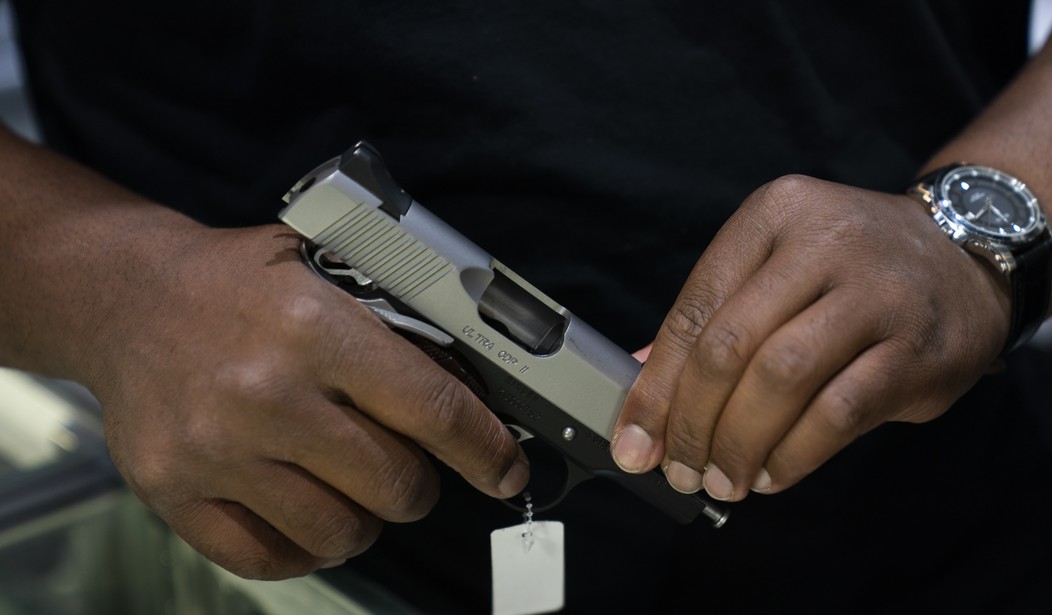Gun control advocates engage in a variety of arguments to try and justify restrictions on our right to keep and bear arms. One particularly popular one with that crowd is to claim that child deaths are so high that we simply have to do something.
Of course, the studies they quote ignore people under the age of one and include legal adults age 18 and 19, which skews the numbers heavily, but that still leaves a whole lot of kids being killed with a firearm.
And anti-gunners say that we need gun control to prevent that.
The problem? Well, besides it being an assault on our rights, there's the pesky little issue of the laws not really working the way advocates claimed.
Our analysis of suicide and homicide mortality data from 009 to 020 in children under 18 suggests that we do actually have some laws that work,” said Krista Haines, D.O., lead author of a study appearing July 11 in the Journal of the American College of Surgeons.
“But there are very few of these laws, and they only appear to work for suicide, not for homicide,” said Haines, an assistant professor in the departments of Surgery and Population Health Sciences at Duke University School of Medicine. “Our study clearly points to a need for more laws and controlled access to these guns, especially given the high rates of death among children in the United States.”
...
The study identified 36 firearm laws, including regulations for background checks, mandatory waiting periods, "stand your ground" laws that provide self-defense protections, safe storage provisions, and access prohibitions for people at risk of harming themselves or others.
From 009-2020, there were 6,735 suicides and 10,278 homicides by firearm in the U.S., totaling 17,013 child deaths. Overlaid with the state law database, the researchers found:
- States with safe storage laws and mandatory waiting periods demonstrated lower suicide mortality rates among children.
- “Stand your ground” laws, prevalent in states with less restrictive firearm legislation, showed a correlation with higher suicide mortalities.
- There were no significant reductions in suicide death rates in states with laws setting minimum ages for possession or purchase of firearms.
- There were no notable distinctions between states with and without firearm laws for homicide mortality rates.
“It was surprising to me that no laws appear to be impacting the rates of homicide in children, not even safe access,” Haines said. “It’s sad and shocking.”
The fact that Haines found it shocking is indicative of the fact that she tends to view this stuff in a bubble rather than delving into the nitty-gritty of violent crime to any extent.
Of course laws don't prevent this sort of thing, including mandatory storage laws. Kids aren't rummaging through their parents' bedroom looking for a gun they can use to murder a rival. While mass shooters do occasionally do that to gain access to a firearm, they account for very, very few gun deaths each year, either among kids or society as a whole.
Instead, kids involved in criminal activity or are adjacent to criminal activity--those engrossed in gang culture even if they're not in a gang--and those kids are getting guns on the streets from black market dealers or via straw purchases. Both of those actions are illegal, but that just adds to the allure to some of these kids.
Of course, as you can see above, that's far from the totality of what was found by the researchers.
They somehow found a correlation between Stand your Ground laws and suicides, which makes absolutely no sense as those laws have absolutely no bearing on suicide prevention. Which goes to show why you can't assume correlation equals causation.
Which brings us to the child suicide data.
Mandatory storage laws and waiting periods are supposedly correlationed to lower suicide morality rates. First, the study can't seem to show any mechanisms for waiting periods to impact suicides for an age demographic barred from buying firearms. However, waiting periods are more likely to exist in conjunction with mandatory storage laws, which means they're not doing much.
Yet the issue here isn't whether mandatory storage laws work but whether proper gun storage works, and I don't think there's really any debate.
The issue arises because mandatory storage laws take the decision out of people's hands while there were better approaches that could have been utilized to increase gun storage and not tell people what to do.
So yeah, the one area this study supposedly found gun laws doing some good isn't really a place where gun laws did the job. It was people complying with the law that may have had an impact--and it's only a case of "may" because correlations aren't causations--and people can do that without the laws on the books. They can be educated to do so, which is a much more productive approach.








Join the conversation as a VIP Member